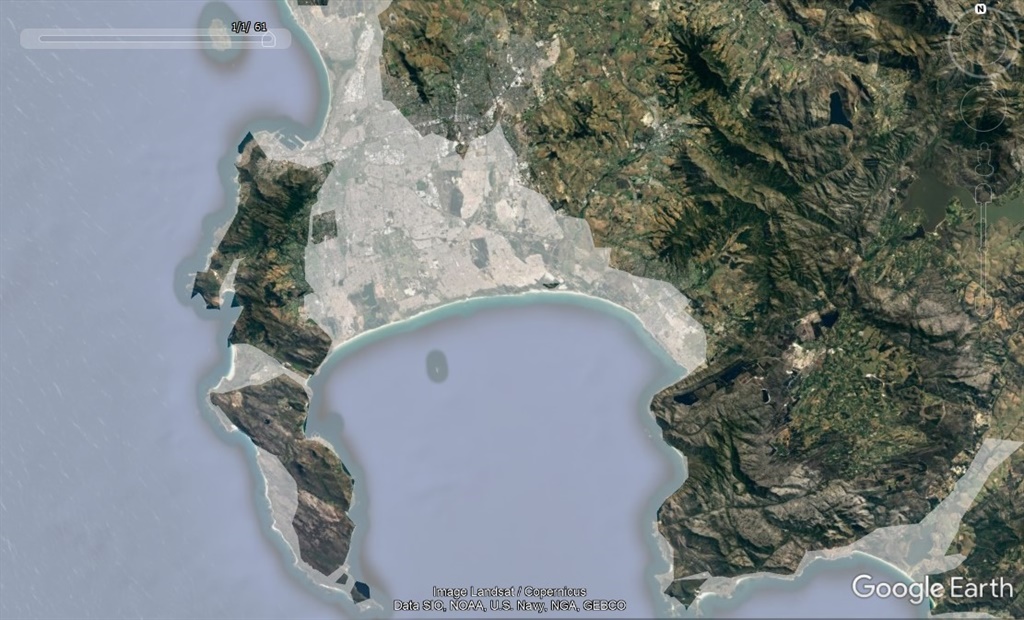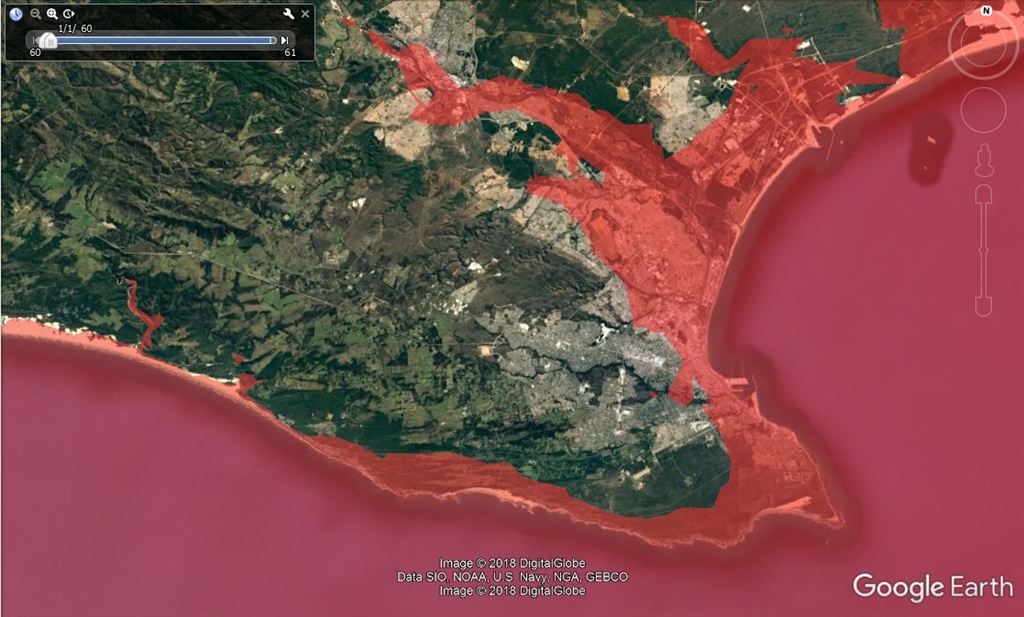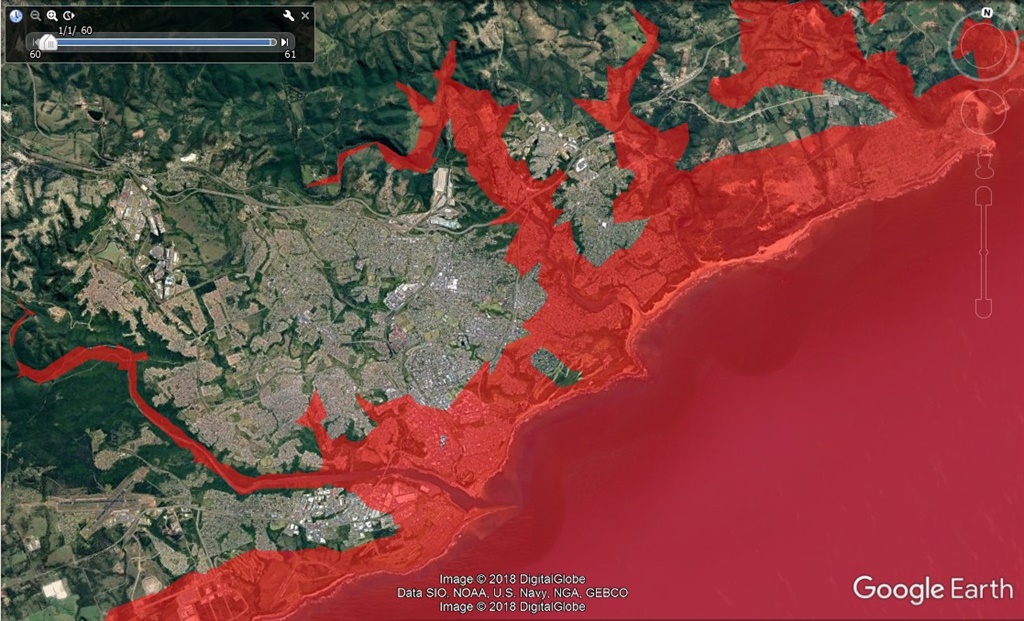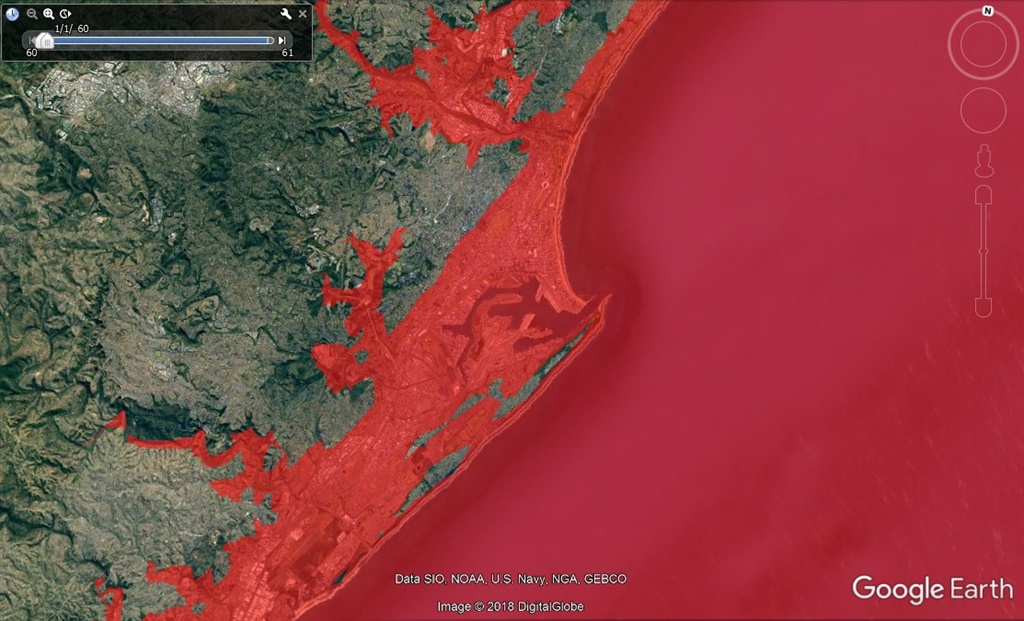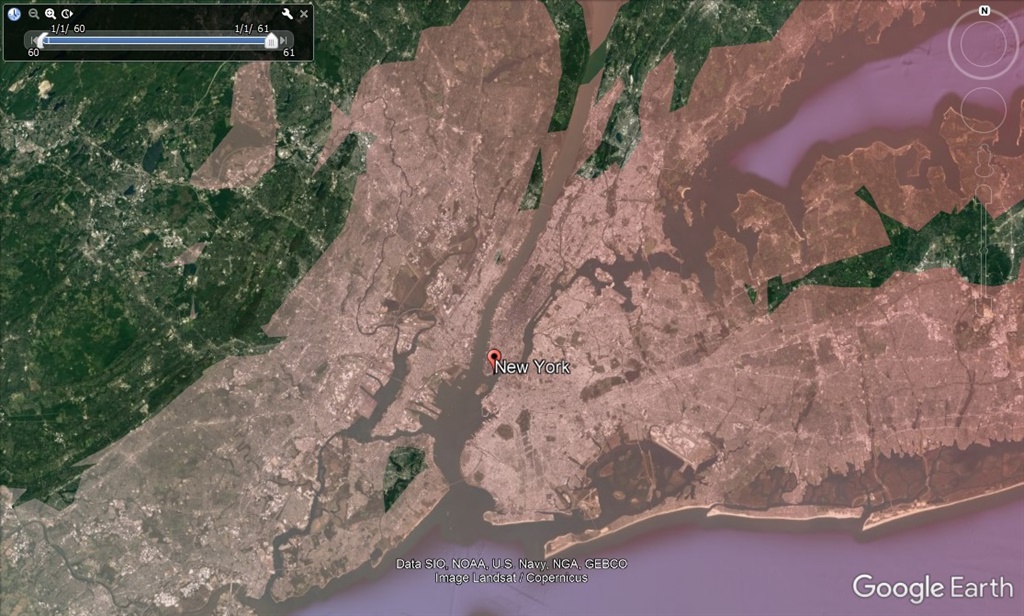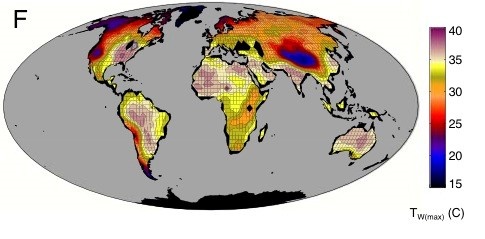If you missed it, on Monday 6 August, an international team of climate researchers published a study in a journal called Proceedings of the National Academy of Sciences (PNAS) showing that "even if the carbon emission reductions called for in the Paris Agreement are met, there is a risk of Earth entering what the scientists call 'Hothouse Earth' conditions".
The paper says that a "Hothouse Earth" climate will in the centuries to come stabilise at a global average temperature of 4-5°C higher than pre-industrial norms – higher than at any time in the past 1.2 million years – with melting ice sheets causing sea levels to rise 10-60 metres higher than they are today.
Let that sink in for a moment. Then consider the vast swathes of Earth's surface that will become either submerged by sea water or uninhabitable hothouses. Consider the food shortages, the mass migration, and the inevitable decline of our human civilisation as we know it today.
This might not scare you, but it's sure to scare the living daylights out of your children/grandchildren who will probably be trying to raise their own families in the face of this unfolding nightmare.
Sea level rise in perspective
Although a 60-metre rise in sea levels is on the extreme end of the Hothouse Earth scenario, it's an interesting exercise putting this number into perspective. What follows are screenshots taken from Google Earth using its "sea level rise" layering function.
Set at 60 metres, the effects of sea level rise on South Africa's major coastal cities and other major cities around the world are quite astonishing (note – ocean colour depicts water temperature only):
Cape Town – Table Mountain and the Cape Point peninsula become islands:
Port Elizabeth – loss of extensive low-lying residential, commercial and industrial areas:
East London – loss of low-lying coastal and valley infrastructure, including port:
Durban – economically critical coastal districts and surrounding suburbs are inundated:
And if you thought you'd be safe in London, New York, Sydney or Rio de Janeiro … think again.
New York:
Apparent in each one of these screenshots is the scale of densely populated urban area that will be flooded by rising sea levels within a few centuries, should the Hothouse Earth scenario play out.
Cities aside, places such as the world's island nations, the Netherlands, Vietnam, Bangladesh, Florida in the United States, and Eastern China – which are home to populations ranging in size from a few thousand to a few hundred million – also face apocalyptic-scale flooding.
This is what human generations that follow us might face if we don't – as a minimum – respect the carbon emission reduction targets stipulated in the Paris Agreement.
Uninhabitable land extent in perspective
If you're not already acquainted with the term "wet-bulb temperature", then best you familiarise yourself with it because you're going to be hearing it with increasing frequency in the future.
Wet-bulb temperature (WBT) is the reading given by an ordinary thermometer wrapped in a wet cloth. It is different to the "dry-bulb-temperatures" that we see on online weather services and news channels, in that WBT takes humidity into account. In high humidity conditions, evaporation from the cloth is slowed, thus causing a higher wet-bulb temperature. For more information click here.
Importantly, research has shown that a healthy human being is unlikely to survive for more than six hours outdoors in wet-bulb temperatures of 35°C and above.
In the Hothouse Earth scenario, swathes of the Earth's surface particularly in the notoriously humid equatorial and tropical regions are expected to become uninhabitable, with soaring wet-bulb temperatures being one of the many reasons for this.
The world map below gives an indication of where these uninhabitable zones could develop, although it's important to note that the climate model used assumes a global-mean temperature increase of 12°C. The white to light purple hues indicate areas where wet-bulb temperatures are likely to exceed the human threshold of habitability. (Purdue University graphic/Matthew Huber)
Hot air or hot potato?
If the last month is anything to go by, then the threat presented in the Hothouse Earth scenario is probably more "hot potato" than "hot air". Here is a sample of articles published on CNN recently that gives us every motivation to take climate change very seriously – even if we don't believe in it.
- Deadly heat waves becoming more common due to climate change
- 2018 is on pace to be the 4th-hottest year on record
- Clearly, the climate crisis is upon us
- China region set to become deadliest heat wave zone: report
- Our climate plans are in pieces as killer summer shreds records
- Earth at risk of becoming 'hothouse' if tipping point reached, report warns
Last month was a sneak preview of the future if we continue to dither about sustainable reform.
It doesn't have to be 'all doom and gloom'
The great news is that each and every one of us can do a whole lot more than we think to avert this Hothouse Earth. The power to change environmentally detrimental norms in our society lies with us first, business second and government third – no matter what the order should be.
We have to drive the change. Political will and commercial will shall only follow in the wake of social will.
As mentioned in a previous "Wake-up Call" article, the solutions are tough but clear. To start, commit yourself to purchasing renewable energy products only – be it an electric car or bicycle, solar panels for your house/business, or even a solar geyser; shifting your lifestyle towards plastic-free; reducing your meat consumption; and being conservative in the number of children you decide to have.
Let's save our world together… start today.
- Robert J. Traydon is a BSc graduate of Engineering and the author of 'Wake-up Call: 2035'. He's travelled to over 40 countries across six continents and worked in various business spheres. His articles explore a wide range of current affairs from a uniquely contrarian perspective.
Disclaimer: News24 encourages freedom of speech and the expression of diverse views. The views of columnists published on News24 are therefore their own and do not necessarily represent the views of News24.




 Publications
Publications
 Partners
Partners




